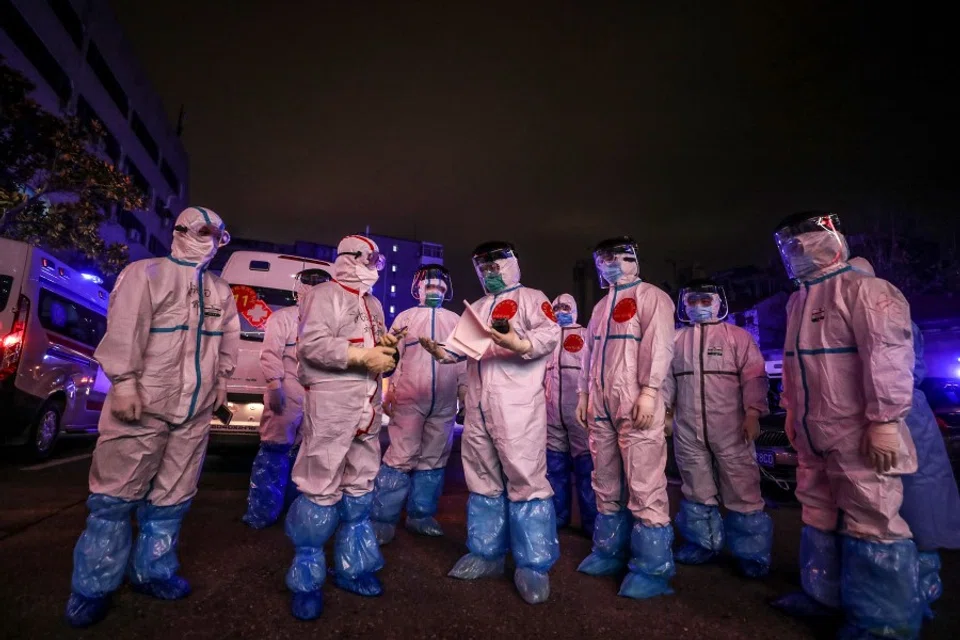Official's call for city of Wuhan to express gratitude backfires
Angry netizens suggest that Wuhan party secretary Wang Zhonglin's call for gratitude for the CCP shows where officials' allegiance truly lies. The testy mood of the public portends the zero tolerance of further grandstanding behaviour.

Because of Wuhan party secretary Wang Zhonglin, the term "gratitude" (感恩, gan'en) has gone viral.
On the night of 6 March, Wang declared in Wuhan: "We have to educate the people of this city to be grateful to the general secretary (Xi Jinping) and the Chinese Communist Party (CCP), to obey the party, and become a strong positive force."
Wang's call quickly drew a strong online response. Mainstream media often report that official statements are garnering "enthusiastic response" (热烈反响) from the public, but in this case, the strong and enthusiastic response is genuine.
All at once, the online community shared their ideas for expressing "gratitude". The term not only became a hot topic on the internet, but some said "gratitude" will probably become a common toast during meals after the Covid-19 epidemic ends.


Probably not even Wang himself expected his simple comment would make "gratitude" such a hot topic.
However, the objects of gratitude for Wang and the online community are very different. Wang called for the people of Wuhan to be grateful to the top leaders and ruling party; the netizens are grateful mainly to the healthcare workers and volunteers at the front line of efforts against the epidemic, as well as the tens of thousands of ordinary people stuck at home because of the epidemic.
Having different objects of gratitude is one thing; after all, Wang and most netizens are in different positions. But Wang's call for gratitude did not produce the expected positivity, but unanimous criticism and mockery, bringing him down along with his desired objects of gratitude, and forcing the online censors to remove countless posts.
Wanting people at this time to be grateful to those in power, and asking for gratitude through education, can only be described as ridiculous.
It seems that Wang's call led to an unexpected negative result, in a classic case of failed publicity that again exposed the authorities' misjudgement of public opinion.
Following the Covid-19 outbreak, Hubei and Wuhan were locked down and people in various parts of China had their movements restricted, disrupting the economy and people's lives. While the authorities have invested a lot and managed to shift the tide of the epidemic, there is no certainty on when it will end. It is difficult to estimate the losses to communities and individuals, while many people cannot shake off the psychological effects, and calls for accountability continue. Wanting people at this time to be grateful to those in power, and asking for gratitude through education, can only be described as ridiculous.
Having only become the top man in Wuhan on 13 February, Wang has worked hard in the past month. The epidemic in Wuhan is coming under control, and Wang has probably contributed to that. But this sudden controversy over gratitude has put a dent in these contributions and directly impacted how people feel and talk about him, and it will not be easy to change people's impression.

This whole controversy went from a low-level mistake to a high-level embarrassment (低级红,高级黑), all in the name of the CCP, which of course was not what Wang intended. The question is, as a veteran politician, how did Wang make such a low-level mistake?
In imperial times, thanking the emperor for favours and obeying one's superiors were basic skills for officials to protect themselves and get promoted, and such DNA is still useful today.
This has to do with the longstanding culture of ingratiation in China's political circles and the political climate in recent years. In imperial times, thanking the emperor for favours and obeying one's superiors were basic skills for officials to protect themselves and get promoted, and such DNA is still useful today. Imperial times are past, but the centralised system remains. Regardless of the pros and cons of such a system, it does require officials at all levels to observe political discipline as determined by those on top in order to work, such as the "Four Consciousnesses" (四个意识: maintaining political integrity, thinking in big-picture terms, following the leadership core, and keeping in line), and the "Two Defences" ( 两个维护: defending the status of General Secretary Xi Jinping as the core of the CPC Central Committee and the whole Party; and defending the authority, and centralised and unified leadership of the CPC Central Committee).
But observing political discipline does not mean making low-level mistakes. China is taking serious measures against the epidemic which are working well, but the fact that officials in other regions have not responded to Wang's call for "education in gratitude" shows that it is Wang's idea and not a centralised order.

For ordinary people, political speak by officials has little to do with their daily lives. Besides, China's rapid development is clear to everyone, and there is strong support for the ruling party. Ordinarily, people do not overtly go against political speak, but mainly treat it as a unique characteristic of China.
But this does not mean that people are infinitely tolerant of political manipulation. For example, after ten years of the disastrous Cultural Revolution, promoting idolisation of an individual is one thing that could spark public backlash, and one might say this controversy over gratitude touched that very nerve.
To the authorities, this unnecessary controversy is a lesson and a warning. Public sentiment is sometimes diverse and unclear, but policymakers cannot ignore that, or go against public sentiment and the current situation to show loyalty. Otherwise, they will damage their own image and get themselves into trouble.



![[Photos] Fact versus fiction: The portrayal of WWII anti-Japanese martyrs in Taiwan](https://cassette.sphdigital.com.sg/image/thinkchina/3494f8bd481870f7c65b881fd21a3fd733f573f23232376e39c532a2c7593cbc)

